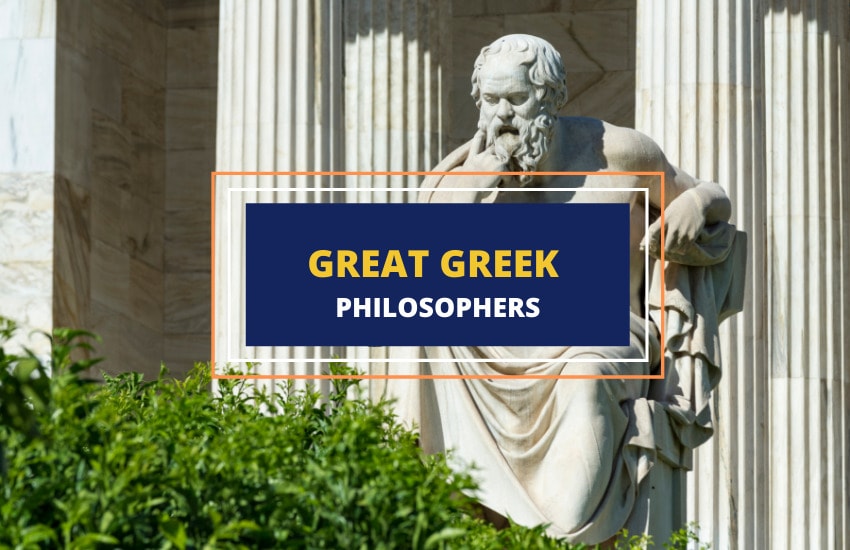
Table of Contents
Philosophy is a way for us to try and grasp the immense complexities of the world we live in. Humans have always asked the big questions. What makes us human? What is the meaning of life? What is the origin of everything and where is humanity heading?
Countless societies and civilizations have tried to answer these questions. We see these attempts in literature, sculpture, dance, music, cinematography, and more. Perhaps the most fruitful early attempts to remove the veil off hidden knowledge occurred in Greece where a series of intellectuals dared to tackle some of the most fundamental questions humans have ever ventured to ask.
Read on as we walk down the pathway of the most famous Greek philosophers and stand in their shoes as they provide answers to some of life’s most pressing questions.
Thales
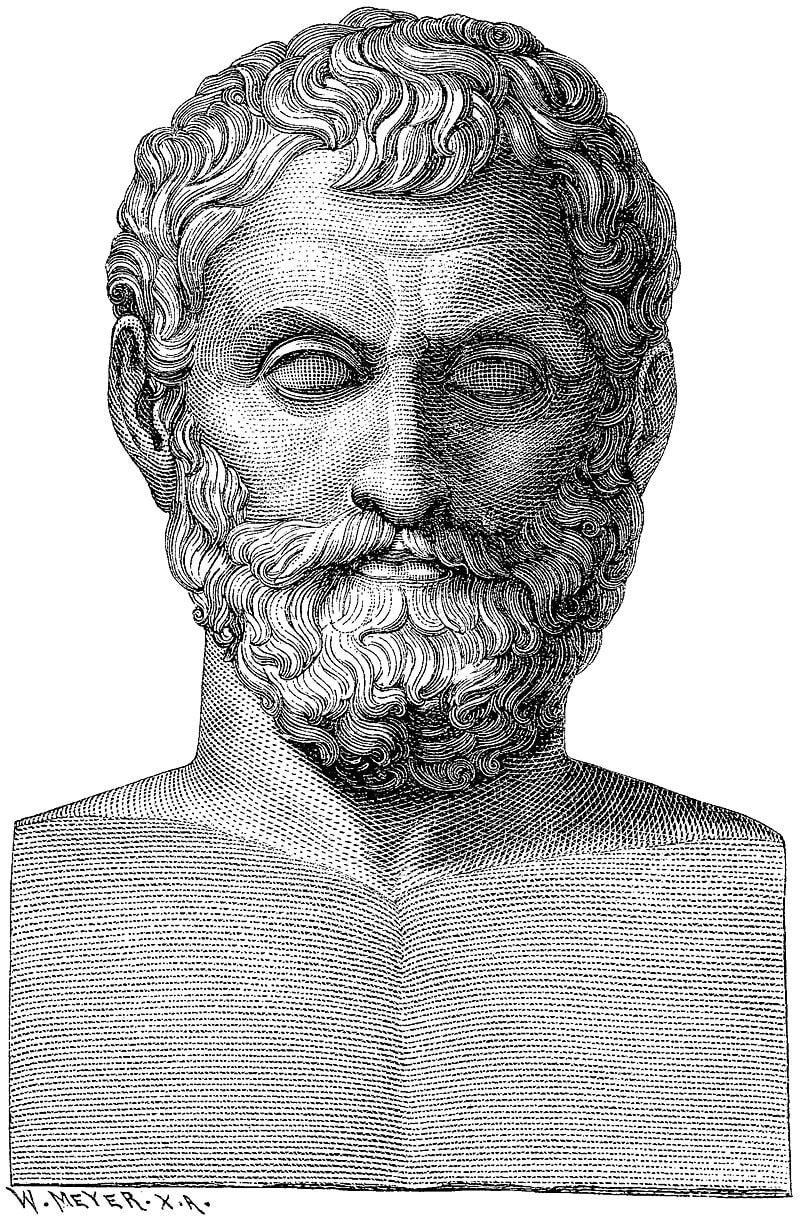
Thales is considered one of the first philosophers of ancient Greece and is traditionally believed to be one of the first Greeks to consider the importance of reason and proof. Thales was the first Greek philosopher to try and describe the universe. In fact, he’s credited with having created the word Cosmos.
Thales lived in Miletus, a city on the crossroads of civilizations, where he was exposed to diverse knowledge throughout his life. Thales studied geometry and used deductive reasoning to try and achieve some universal generalizations.
He bravely kickstarted philosophical developments by claiming that the world could not have been created by a divine being and that the entire universe was created out of arche, a creating principle which he considered to be water. Thales believed that the world is one thing, not a collection of many different things.
Anaximander
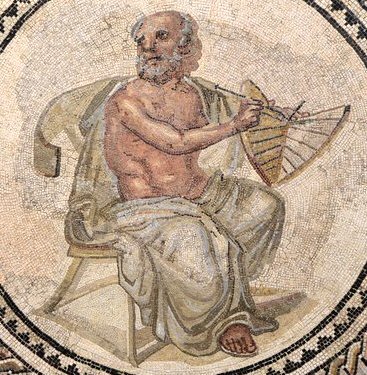
Anaximander followed in the footsteps of Thales. He was a wealthy statesman and at the time was one of the first ancient Greeks that tried to draw a map of the world and develop an instrument that would measure time.
Anaximander tried to present his own answer about the origins of the world and the fundamental element that creates everything. Anaximander believed that the principle out of which everything emanates is called Apeiron.
Apeiron is an undefined substance out of which all qualities such as hot and cold, or dry and moist emanate. Anaximander continues with the logic of Thales and denies that the universe was created by any sort of divine being, claiming that the origin of the universe was natural.
Anaximenes

The Miletus school ended with Anaximenes who wrote a book about nature in which he presented his ideas about the nature of the universe.
Unlike Thales and Anaximander, Anaximenes believed that the creating principle out of which everything was established is air.
With the death of Anaximenes, Greek philosophy would move on from the naturalistic school and develop into various schools of thinking that would not only tackle the origin of the universe but that of human society as well.
Pythagoras

Pythagoras is often considered to be a mathematician, but his mathematics is threaded with some philosophical observations.
Pythagoras famously believed that the entire universe is made from numbers and that everything in existence is actually a physical reflection of geometric relations between numbers.
Although Pythagoras did not delve much into the origins of the universe, he saw numbers as organizing and creating principles. Through numbers, Pythagoras saw that the entire universe was in perfect geometric harmony.
Socrates
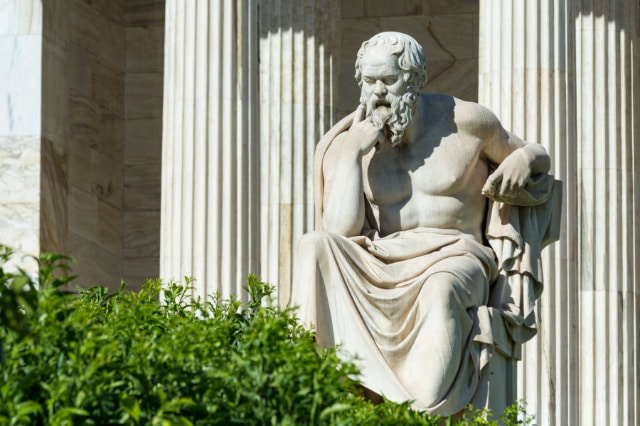
Socrates lived in Athens in the 5th century BCE and traveled all over Greece, where he collected his vast knowledge on astronomy, geometry, and cosmology.
He is among the first Greek philosophers that set his gaze towards life on Earth and how humans live in societies. He was very much aware of politics and is considered one of the founders of political philosophy.
He was very outspoken and was not favored among the elite. He would often be labeled as trying to corrupt the youth and disrespecting the city gods. Socrates believed that democracy and other forms of government are pretty much useless and believed that societies should be headed by philosopher-kings.
Socrates developed a specific method of reasoning called the Socratic method in which he would try to point out the inconsistencies in reasoning and refute what was at the time believed to be the ultimate proven knowledge
Plato
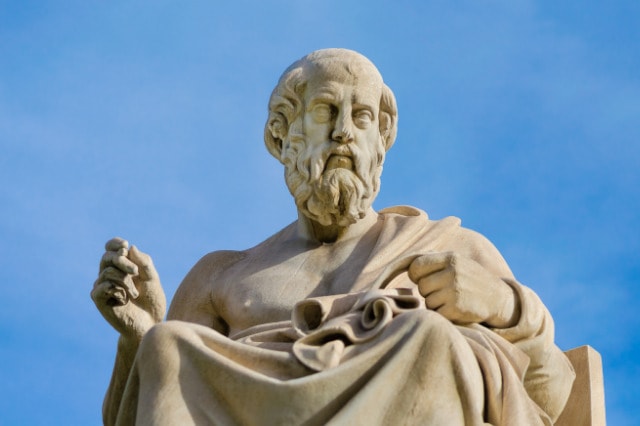
Plato lived and worked in Athens one generation after Socrates. Plato is the founder of the Platonist school of thought and one of the leading figures in the history of philosophy of the western world.
Plato was the propagator of the written dialogue and dialectic forms in philosophy and his most famous contribution to western philosophy is the theory of forms. In his worldview, Plato considered the entire physical world to be created and maintained by absolute, abstract, and timeless forms or ideas that never change.
These ideas or forms have no physical body and exist outside of the human world. Plato believed that it is these ideas that should be the focus of philosophical studies.
Although the world of ideas exists independently of ours, Plato believed that ideas apply to objects in the physical world. This is how the idea of “red” is universal because it can imply many different things. It is not the actual color red, but the idea of it that can be then attributed to objects in our world.
Plato was famous for his political philosophy, and he passionately believed that a good society should be governed by philosopher-kings who are intelligent, rational, and who love knowledge and wisdom.
For a society to properly function, philosopher-kings should be aided by workers and guardians who do not need to worry about wisdom and making complex societal decisions but who are essential in maintaining the society.
Aristotle
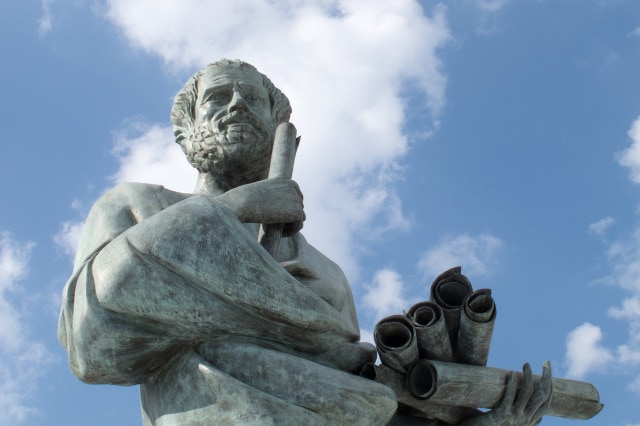
Aristotle is another Athenian philosopher heavily influenced by Plato. Aristotle eventually became a teacher of Alexander the Great and left immeasurable traces on subjects like logic, rhetoric, and metaphysics.
Aristotle is often portrayed as one of Plato’s biggest critics and his philosophy is often described as causing the great split in western philosophy into Aristotelian and Platonian sects. He based humans in a realm of politics and famously stated that a human is a political animal.
His philosophy gravitates around the importance of knowledge and how it is achieved. For Aristotle, all knowledge must be based on logic and found logic to be the basis of reasoning.
Contrary to Plato who believed that the essence of every object is its idea that exists outside of that object, Aristotle found them to coexist. Aristotle rejected the idea that a human soul exists outside of the body.
Aristotle famously described the nature of change in objects through different causes. He mentions the material cause which describes the material from which an object is made, the formal cause that explains how matter is arranged, the efficient cause that explains where an object and the matter of that object came from, and the final cause which is the purpose of an object. All of these together make up an object.
Diogenes
Diogenes became infamous for negating all societal conventions and norms of Athens. He was highly critical of Athenian society and focused his life on simplicity. Diogenes did not see a point in trying to fit in a society that he saw as corrupt and devoid of values and meaning. He famously slept and ate wherever and whenever he saw fit, and he believed himself to be a citizen of the world, not of any city or state. For Diogenes, simplicity was the ultimate virtue in life and started the school of Cynics.
Euclid of Magara
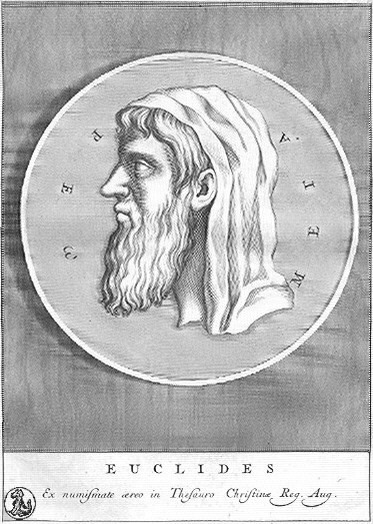
Euclid of Magara was a philosopher that followed in the footsteps of Socrates who was his teacher. Euclid believed in the supreme good as the force that drives everything and refused to believe that there was anything opposed to good. He understood good as the greatest knowledge.
Euclid was famous for his contribution to dialogue and debate where he would famously point out the absurd consequences that could be drawn from his opponents’ arguments, thus proving indirectly his own point.
Zeno of Citium
Zeno of Citium is considered a founder of stoicism. He taught the practice in Athens, and he founded his beliefs on the bases laid out by the cynics before him.
Stoicism as professed by Zeno emphasized goodness and virtue that emanates from one’s peace of mind. Stoicism emphasized the importance of nature and living in agreement with it.
The end goal of stoicism is achieving Eudaimonia, which is loosely translated as happiness or welfare, human prosperity, or a general sense of wellbeing.
Wrapping Up
Greek philosophers have truly kickstarted some of the most fundamental intellectual developments of human thought. They asked what the origin of the universe is and what are the ultimate virtues we should strive for. Ancient Greece was at a crossroads of sharing ideas and knowledge, so it comes as no surprise that some of the greatest thinkers of human history lived and thrived in this region.








